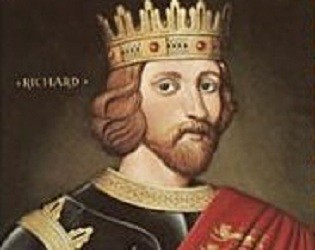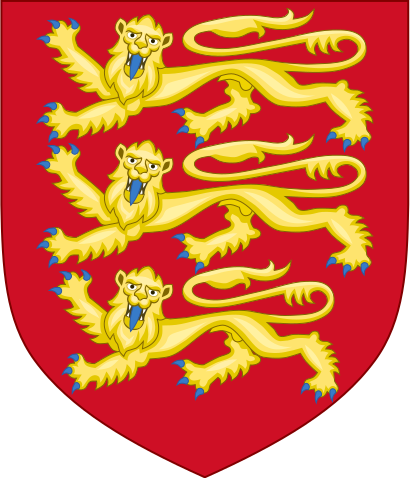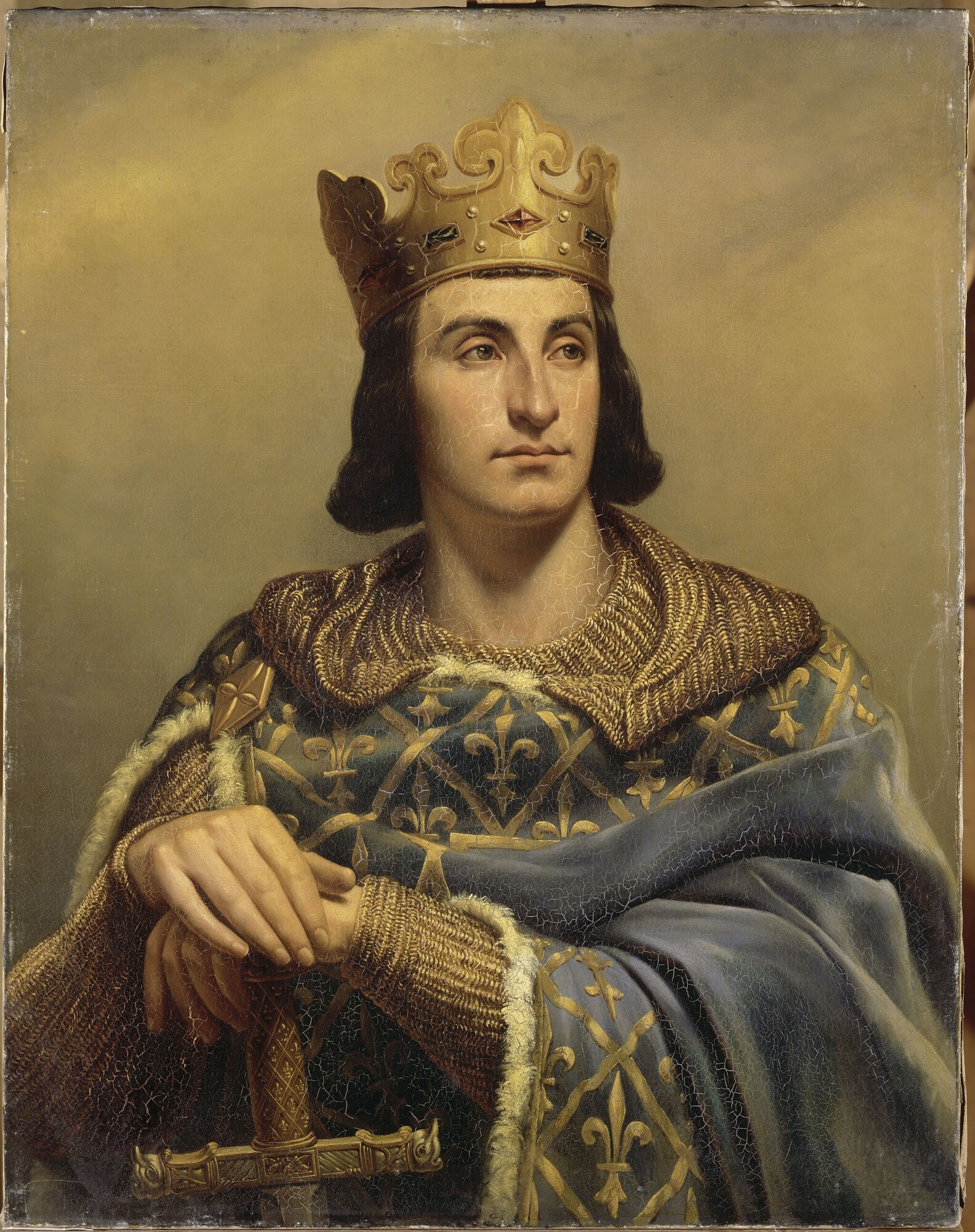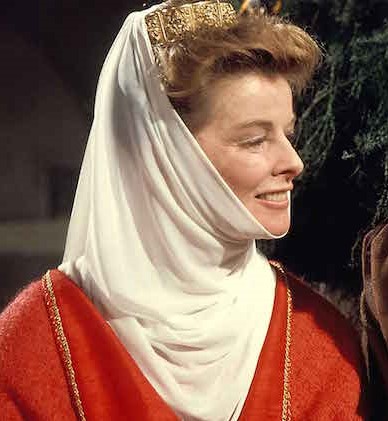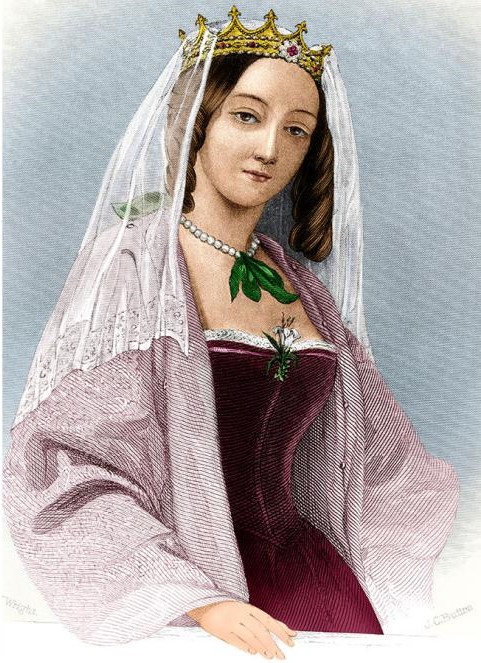Brutus the Trojan, grandson of Aeneas, founded Britain in 1115 BC, according to Geoffrey of Monmouth's History of the Kings of Britain.

History of England
-
1115 BC
The Founding of Britain
Founding -
753 BC
693 BC
King Leir
Leir rules Loegria for 60 years, according to Geoffrey of Monmouth's History of the Kings of Britain, and is succeeded by his daughter Cordelia, who rules for 5 years.
-
390 BC
The Sack of Rome
Military actionBelinus, King of Loegria, Kamber and Cornwall, and his brother Brennius, King of Northumbria and Alba, sack Rome, according to Geoffrey of Monmouth's History of the Kings of Britain.
-
55 BC
54 BC
Caesar's Invasion of Britain
Military actionGauis Julius Caesar invades Britain. King Cassivelaunus is victorious the first battle against Caesar at the Thames estuary, according to Geoffrey of Monmouth's History of the Kings of Britain. The British champion Nennius, Cassivelaunus' brother captured Caesar's sword, Yellow Death, but was himself mortally wounded and buried with the sword at Trinovantum (London). Caesar was forced to abandon the invasion, but returned again two years later. Though King Cassivelaunus was again initially successful, the treacherous Duke Androgeus allied with Caesar and King Cassivelaunus was defeated in a battle at Durobernia (Canterbury). Cassivelaunus agreed to pay an annual tribute of £3000 in silver to Caesar, who then returned to Gaul.
-
43 AD
87 AD
Roman Conquest of Britain
Military actionEmperor Claudius send four legions under General Aulus Plautius to conquer Britain. The island is largely pacified by 87 AD.
-
500 AD
600 AD
Migration Period
Population Migration / TravelFollowing the Roman withdrawal from Britain, Angles, Saxons and Jutes migrate from continental Europe and colonise the lowlands of what will become known as England.
-
542 AD
The Battle of Camblam
Military actionArthur, King of Loegria and Britain, Emperor of the Romans, wages war against his rebellious nephew Mordred, according to Geoffrey of Monmouth's History of the Kings of Britain. Mordred is killed and Arthur is mortally wounded in a battle against Mordred at the River Camblam. Throusands of troops are killed, and many leaders. Arthur hands his crown to his nephew Constantine III and is carried to the Isle of Avalon, where his wounds are tended to. He is heard of no more.
-
793 AD
2 /6
Vikings raid Lindisfarne
Military actionThe Viking raid on the monstery of Lindisfarne in Northumbria caused consternation throughout Europe. Many of the monks were killed, captured or enslaved. Alcuin of York, a Northumbrian scholar at the Court of Charlemagne, wrote, "Never before has such terror appeared in Britain as we have now suffered from a pagan race ... The heathens poured out the blood of saints around the altar, and trampled on the bodies of saints in the temple of God, like dung in the streets." The raid heralds the start of the Viking Age.
-
1066 AD
14 /101066 AD
25 /12
Norman Conquest of England
Military actionDuke William of Normandy defeated an English army under Harold Godwinson at Senlac Hill, near Hastings, on 14 October 1066. Harold was killed in the battle. The English Witenagemot proclaimed the teenaged Edgar the Aetheling, grandson of Edmund Ironside, the new king. Duke William defeated a second English army at Southwark in October 1066, but was unable to cross the bridge to London. Duke William travelled up the Thames to Wallingford, where he crossed the river and advanced on London. King Edgar's supporters submitted to him at Berkhamsted, and he was crowned King of the English by Archbishop Stigand at Westminster on 25 December 1066.
-
1120 AD
25 /11
The White Ship
Disaster / DestructionThe White Ship carrying William Aetheling, King Henry I's heir and only legitimate son, and a large number of young English and Norman nobles, sank leaving Barfleur, at night with the loss of all lives save one: a butcher from Rouen who managed to cling to a rock until rescued.
-
1138 AD
1154 AD
The Anarchy
RevolutionIn 1138 Robert, Earl of Gloucester, issued his defiance against King Stephen and took up arms on behalf of his half-sister the Empress Mathilda's claim to the throne of England. The resulting civil war lasted until the death of Stephen in 1154.
-
1154 AD
19 /121189 AD
6 /7
Reign of King Henry II
Political eventHenry Plantagent, already Duke of Normandy and Count of Anjou and Maine in his own right, and Duke of Aquitaine by right of marriage to Eleanor of Aquitaine, is crowned King of England in 1154 following the death of King Stephen. His reign ends with his death in 1189.
-
1189 AD
3 /9
Coronation of King Richard
Political eventRichard Plantagent, called Lionheart, is crowned King of England at Westminster Abbey.
-
1189 AD
12
Richard leaves England
Population Migration / TravelRichard sails from Dover and reaches Calais on December 11. Many say that he will never return to England.
-
1190 AD
11190 AD
/6
Richard tours continental possessions
Political eventDuring the first part of 1190 King Richard tours his continental poossessions - Normandy, Anjou. Poitheu and Aquitaine - appointing or confirming seneschals and making arrangements for his absence.
-
1190 AD
71190 AD
/9
Richard and Philip begin their crusade
Population Migration / TravelRichard and Philip meet in Vézelay, Burgundy, and begin their separate journeys to Outremer.
-
1191 AD
2
Berengaria and Eleanor reach Naples
Population Migration / TravelBerengaria of Navarre and Eleanor of Aquitaine reach Naples in late February, accompanied by Count Philip of Flanders. King Tancred complains their retinue is too large to accommodate in an already overcrowded Messina; he is prepared to allow Count Philip into the city, but not Berengaria and Eleanor, who travel to Brindisi
-
1191 AD
3
Richard and Philip confer
Diplomatic actionRichard and Philip meet to discuss Richard's arranged marriage to Philip's sister Alice. Philip agrees to release Richard from his promise in return for 10,000 marks.
-
1191 AD
2 /4
Eleanor leaves for Normandy
Population Migration / TravelAfter three days'rest in Messina, 69 year old Eleanor of Aquitaine leaves the city to start the journey back to Normandy, leaving berengaria of Navarre in the care of her daughter Joan.
-
1191 AD
5
Richard and Berengaria marry
MarriageRichard, King of the English, and Berengaria of Navarre marry at Limassol, Cyprus, on 12 May.

